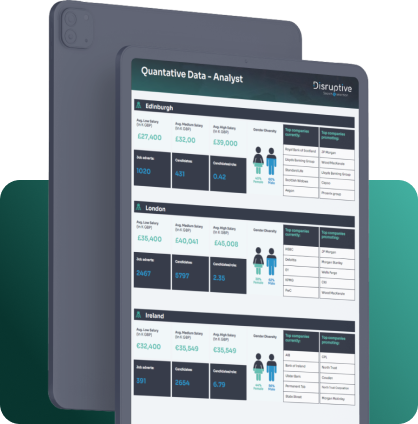Here at Disruptive Hiring we love learning from the people in our community. On The Disruptive Mindset Podcast we recently had the opportunity to sit down with Silvia Mensdorff-Pouilly, who is the SVP of Banking & Payments in Europe at FIS, and an Advisory Board Member at The Payments Association. With such an impressive background we were keen to talk to her about the Digital Payments sector. She told us all about the impact that payments have on financial health and wellbeing, from a personal level to a global scale. One of the highlights of the conversations was her insights on the importance of financial literacy. Read on to learn more!
What is the social impact of currency?
There are a lot of cultural differences in the way that people think about money. To me, money is such an interesting concept. Yuval Harare, who’s a beautiful anthropologist and writer, Israelian writer, he wrote a book called Sapiens: A Short History of Humankind, and he talks about the concept of money because we invented money to trade. He says that for 1000s of years, philosophers, thinkers and prophets of peace, merged money and called it the root of all evil. Be that as, it’s not money that is the root of all evil, it’s the love of money. Money is also the apogee of human tolerance. Money is more open minded than language, state law, cultural codes, religious beliefs and social habits. Money is the only trust system created by humans that can bridge almost any cultural gap and that does not discriminate on the basis of religion, gender, race, age or sexual orientation etc. Thanks to money, even people who don’t know or trust each other can nevertheless cooperate effectively.
How can understanding money change lives?
Now, the important thing is to help people understand how money works. I’m very passionate about financial education and financial inclusion. Financial inclusion starts with helping people understand how money works. When you think about the education system, it doesn’t do that. My children, for example, get a lot of economics at school, but they are taught about macroeconomics and so forth, not how to balance the household books. In the past, we would teach girls how to balance the house books, but now we’re not teaching anybody how to do that. Kids aren’t learning how to earn money, save money, spend money or invest money. When you educate somebody about money, you give them a lot of freedom because you’re giving them the ability to create their own wealth. Ultimately, somebody that is financially included and understands how money works is going to be able to break some of the cycles of poverty that we have.
What are the dangers of digitising our finances?
In a digital world, managing money becomes easier to some extent, but it becomes more difficult in others. I think cash is dangerous, so I spent all my life digitalising money. When you’re a little kid, you get five pounds and you go and get an ice cream, then they hand you the ice cream and you get a couple of coins back. I remember my little girl thinking, ‘I got more money back and an ice cream’, because she didn’t understand the value of cash. We are still very physical beings, so that physical exchange is super important in helping us understand value. In a digital world it is much harder for people to understand, particularly for children to understand that you’re still losing something when you tap your card. With financial digitisation there’s an even bigger need to educate people on financial health and how to manage their money in a digital environment. We really need to manage the disadvantage that comes with it, which is that you could leave people behind because they’re just not digitally savvy.
To learn more about the digital payments sector tune into The Disruptive Mindset Podcast and listen to the full conversation on Spotify here and Apple Podcast here.


How Disruptive is your Leadership Hiring?
Find out where your management team’s weaknesses are and how you could improve your hiring strategies with this free 5 minute questionnaire.
Contact Us
"*" indicates required fields
